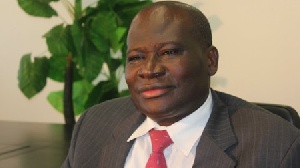Crude oil purchases by the Volta River Authority (VRA) for thermal power generation have increased significantly, on the back of erratic gas supply from Nigeria.
Crude oil imports, according to the VRA, rose from 4.87 million barrels in 2012 to 5.17 million barrels in 2013. Crude oil purchases this year is expected to top the quantity procured last year. One cargo of crude is estimated at 450,000 barrels.
The Authority estimates that a turbine consumes about 5,000 barrels of crude in a day. This requires about US$55million every three weeks to purchase crude for powering thermal plants in the country.
Financing of the crude oil purchases has, however, been very challenging for the Authority given that its tariff covers just 60% of operational cost. The Authority, at certain points, had to fall on Fidelity Bank for loans to purchase crude.
Thermal power generation has come into sharp focus following the challenges posed by hydro-power generation, given poor water inflow into the Akosombo reservoir this year.
The contracted gas volume of 120 million standard cubic feet per day from Nigeria via the West Africa Gas Pipeline has been persistently unreliable.
Ghana’s own gas deposit offshore Cape Three Points is yet to be piped onshore, after several missed deadlines for completion of the country’s gas processing plant and ancillary equipment to power VRA’s plants in Takoradi.
This has necessitated the request for load-shedding by the Ghana Grid Company Limited (GRIDCo), the entity responsible for power transmission, at certain periods this year to maintain the integrity of their system.
Electricity demand in the country is mainly domestic-led. Domestic electricity consumption currently stands at 62 percent, while commercial and industrial consumption stands at 18 and 20 percent respectively.
Electricity demand increased to an all-time high of 12 percent in 2013, growing from the 2012 peak of 1,728.9 Megawatts (MW) to 1,942.9MW at the close of last year.
Over the last four years, however, the average year-to-year growth in demand for electricity has been about 10 percent.
The peak demand for 2011 was 1,664.3MW -- a 10.52 percentage growth over the 2010 demand of 1,505.9MW.
The estimated demand is growing, and current projections indicate that the country’s requirements for electricity will hit 2,764.2MW in 2015.
For a country using under 2,000 megawatts of electricity currently, Ghana ought to be bringing on-stream 200 megawatts of new capacity every year. This additional capacity requires US$200million of annual investment.
Business News of Tuesday, 11 November 2014
Source: BFT



![New IGP, COP Christian Tetteh Yohonu [L] and immediate-past IGP, Dr. Akuffo Dampare New IGP, COP Christian Tetteh Yohonu [L] and immediate-past IGP, Dr. Akuffo Dampare](https://cdn.ghanaweb.com/imagelib/pics/140/14041582.295.jpg)









